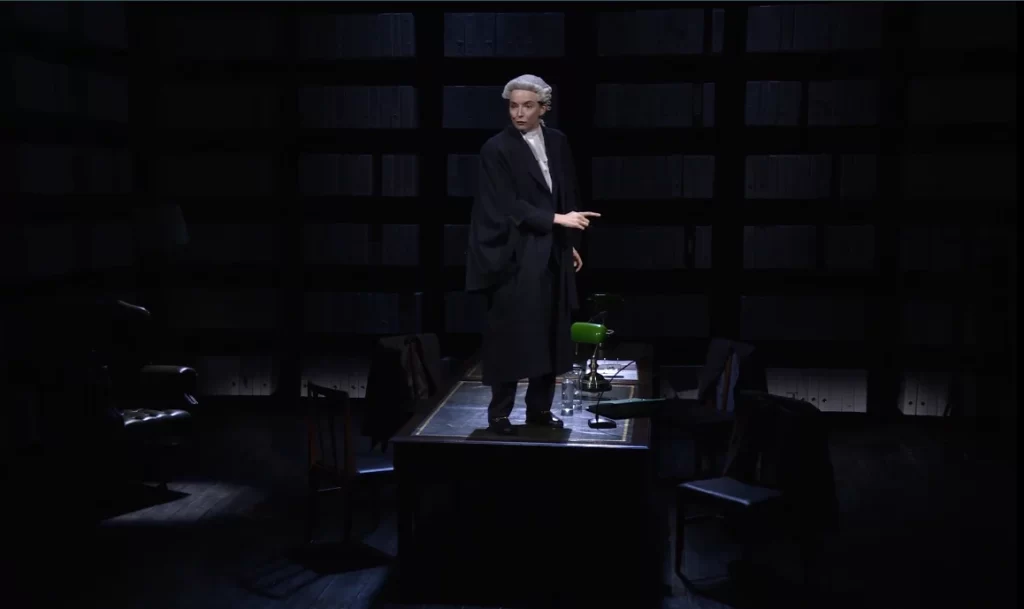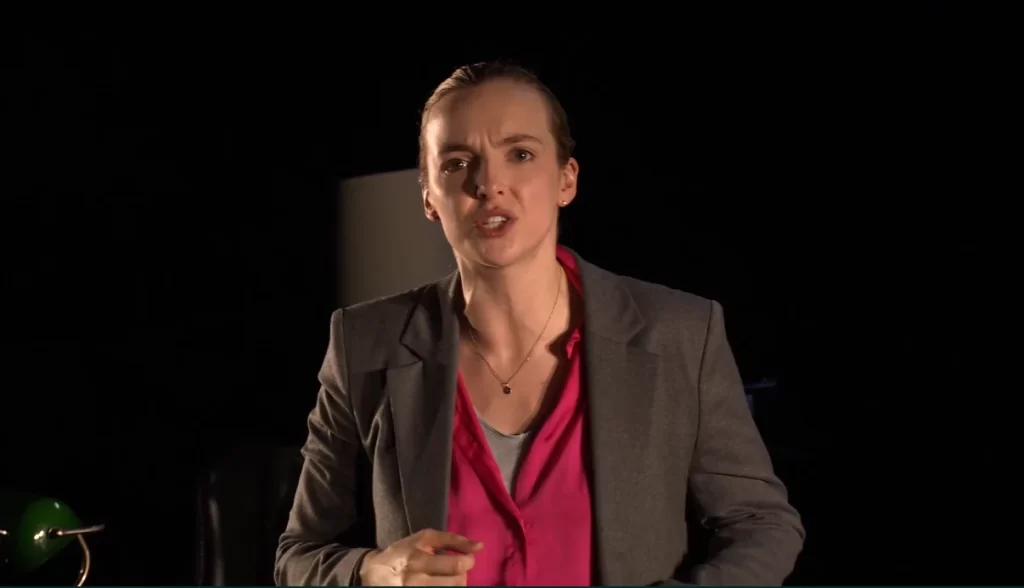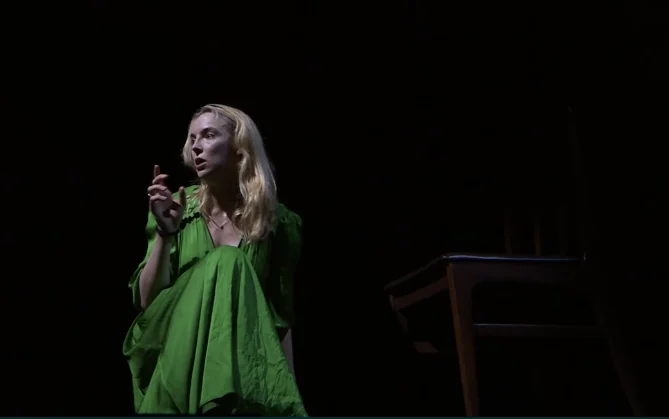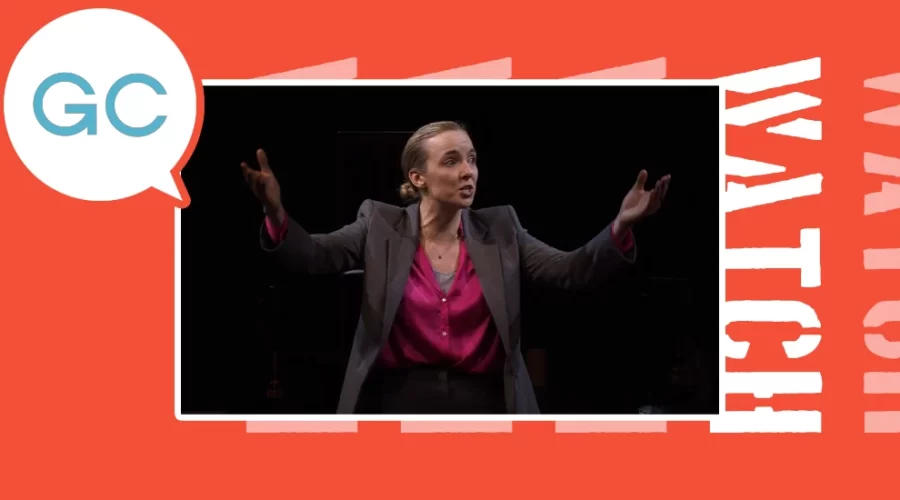Ensler rides the adrenaline high of winning case after case. So what if she defends the odd rapist who was actually guilty? It’s just how it goes. So what if her cross-examinations of victims and survivors occasionally veers towards the brutal? It’s all part of the game.
Tessa Jane Ensler is flippant when talking about the rights and wrongs of criminal trials and the people she defends.
Until she, herself, is raped and finds herself up against the very system she has built a thriving career from. The very system she has always believed in and defended.

Now, she has to call on the system she dedicated her adult life to. She has to trust it to find the truth and deliver justice. A system that takes 782 days from the date of her rape to come to trial.
Playing Ensler in Prima Facie for the National Theatre, and periodically streamed online, is Jodie Comer on a stage, on her own, carrying the weight of so many women’s stories.
We see Tessa go from thriving and egotistical to waiting two years and 52 days to see her rapist in the dock. We see how that wears her down.
Jodie Comer, as in pretty much everything we see her in, excels in this one-woman play. The character of Tessa Ensler allows her to show a sometimes-astounding emotional depth.
Comer makes every facet of Tessa believable, and this character exists as an imperfect victim. One we don’t always like, embodying both boldness and profound trauma. We see not only her own personal breakdown, but the breakdown of her trust in the system that had previously led her to feel powerful.
The exploration of power, gender and privilege in Prima Facie is handled with care by writer Suzie Miller, whose script peels back layers of institutional bias and misogyny, laying bare the cruelty within the criminal justice system when rape survivors try to see their attackers held accountable.

This is a criminal justice system that exists within a society that is itself steeped in misogyny, bias and rape culture; that perpetuates by silencing women and discrediting survivors. How else could it be so successful in allowing so many such assaults to occur and protecting those who commit them?
In every boastful word from Ensler’s mouth at the start of the play, we see the arrogance of these systems. With every broken word after her assault, we see how it is not only rape that dismantles us, it is the structures that allow it, protect it, encourage it and are its accomplices.
Tessa Jane Ensler is a working-class woman from Liverpool who ends up at Cambridge studying law, studying then working within a system so ingrained with privilege that she has to embody it herself to succeed. And she does, spectacularly.
But when she becomes the victim she would previously have been cross examining on the stand, is forced to see the harm caused by both the implicit and explicit rules of the establishment she’s starting to feel like she’s part of. The establishment based on rules written by men, for men, that protect men.

We wish she hadn’t found this out to her own cost but she does, and it breaks us to witness it, just as it breaks Tessa herself.
In a discussion chaired by Emily Maitlis, playwright Suzie Wright talked about the way the play provides a forum to talk about these crucial yet painful issues.
“It’s actually the shame of a whole community and we all have to work towards something that actually creates a forum that’s more appropriate for dealing with these matters, that creates a situation within our community, within our own families, with our own children, how we talk about consent, within the school system. I guess that’s the only way we can have overall change.”
“Once we start talking about these things, we can’t pretend they don’t exist”
Ensler’s realisation of her own complicity in these oppressive systems is devastating to watch, but we have to see it to understand how this woman, portrayed so beautifully and perceptively by Comer, is trapped inside the system she had helped to uphold in the belief that it represented fairness and justice.
Prima Facie looks unflinchingly at class, gender and privilege, and it looks at it through an extraordinary performance by one woman on a stage with very few places to hide. This play is a vital social critique disguised as one woman’s story.

